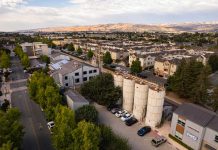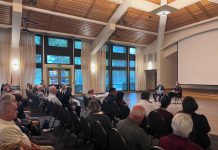I would like to clarify a number of quotes attributed to myself in your July 24 article on public safety.
To be clear, I did not indicate that the city should rely more on mutual aid. My questions and concurrence was that mutual aid is common public safety practice. In times of need, we have the ability to draw from resources from surrounding areas including the county sheriff, the City of Gilroy and the highway patrol, if needed. We also support their calls as well. My point was that our officers and the residents are never alone in a larger public safety community.
I am not nor have I ever advocated for contracting for police services. I have advocated and will continue to advocate that we study contracting for dispatch services. I believe there could be significant savings in this regard and be significant enough that we can hire additional public safety officers without raising or at least limiting the amount of new taxes we choose to levy. This is not a reflection on the work our dispatch staff. They are excellent dispatchers but the question is and must always be the efficient and effective delivery of public services.
Centralized/contracted dispatch services are not new. In Monterey County, our neighbor to the south, all the cities, almost all the fire districts, CSU Monterey Bay and the airport district contract with county emergency communications. Local agencies have found the service to be efficient and cost effective. How do I know? I served as the finance manager for the department. When I asked fire and police chiefs, city and assistant city managers if they would like to provide their own dispatch service, the reply was an unequivocal no. The City of Salinas touted the system to represent the best in how local agencies could collaborate and provide a level of service that neither agency could have provided alone, such as providing and maintaining state-of-the-art dispatch technology, infrastructure, radio and telephone communications equipment, superior training and quality control policies and procedures to insure the public safety and well being.
I am not suggesting that we contract out for dispatch services; I am advocating that we at least study the feasibility. Some council members suggest a study is a wasted effort. I strongly disagree. With $2.13 million in additional proposed annual taxes, a study to look at reducing those costs could be wholly justified.
While I seek further information, I am faced with those who advocate that local control is important, but no one to date has been able to define local dispatch control in measurable terms. It is an emotional comment and somewhat disingenuous when you consider that this city already contracts for fire and paramedic services whose dispatch is provided by a central agency. To date I have heard no complaints regarding this service or how it is dispatched.
Council should and must consider other options before placing a tax measure before the residents. It is our fiduciary responsibility as the amount is both considerable and significant. In my opinion, taxes are a last resort solution and I would only be comfortable in supporting a tax measure after all the other alternatives have been exhausted.
In the recent workshop conducted by the council on police services, I submitted 13 pages of questions on the report submitted by the city. No other council member submitted a single question. In preparation I met for two hours with the police chief and attended a four-hour ride-along. In the workshop I could not reconcile the report provided by the State Commission on Police Officer Standards and Training that indicated that our calls-for-service to be light, and our staffing level to be reasonable. Few if any of my questions where answered or openly addressed. When I asked if we add new officers to the force, would we see a reduction in response time, the answer was not necessarily. Would we see a reduction crime, again the answer was not necessarily. So what are we getting for $2.13 million in measurable public safety services? I really don’t know. The workshop, the responses and the report was disappointing from that perspective.
I do want to say that my ride-along on a Friday evening was an eye opener from a number of perspectives. I saw a part of Morgan Hill I did not know exists. Aside from the fact that the officer and I were almost run over twice by a DUI driver and another with a suspended license, I had the opportunity to observe gang related activities, domestic disturbances and alcohol related incidents. The officers that were on patrol were exemplary in every way. They were attentive, engaged, compassionate and professional. They cared about their work, each other and the community. I felt proud and secure that our residents were and will continue to be well served.
My obligations as an elected official are to make sure your tax dollars are effectively and efficiently utilized. Part of that is asking tough questions but when those questions are not answered, I believe the public is not well served. As much as I would like to hand a blank check to our men and women in blue, I still must make sure that the decisions we make are within our ability to pay for a measurable service towards a desirable outcome we all agree is needed. This includes looking at alternatives, and applying quantitative and qualitative measures in the final decision making process. Above all, it should not be a judgment call as some council members have indicated. Public safety decisions must be on a clearly defined path towards a defined outcome. Failure is not an option when it comes to the public’s safety. Outcomes are only tool for the public to hold elected and appointed officials, division chiefs and individuals accountable. That is why I advocate for measurable outcomes for all the work that we do.
The ancient Romans had a tradition: whenever one of their engineers constructed an arch, as the capstone was hoisted into place, the engineer assumed accountability for his work in the most profound way possible: he stood under the arch. At this moment, I for one cannot stand under this arch.
Mark Grzan is a 13-year Morgan Hill resident. He’s been serving on the Morgan Hill City Council for two years. He’s a computer applications teacher at Gavilan and Foothill colleges and an administrator at San Jose State University. Reach him at mg*******@*****er.net.







